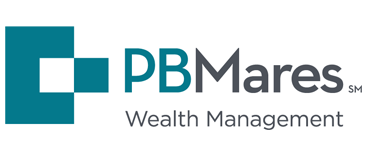401(k) plans are the most common employer-sponsored benefit plan. These defined contribution plans feature tax-deferred gains, a partial employer match, and lean heavily on employee contributions. There are annual contribution limits to a 401(k) plan, which are generally well understood. Highly compensated employees may face additional contribution restrictions they may be unaware of, but there are ways to navigate these restrictions.
401(k) Contribution Limits: All Employees
For the majority of earners, it is generally known that the maximum yearly employee contribution for an employer-sponsored 401(k) plan is $20,500 (for 2022) or $27,000 if eligible for the ‘catch-up provision’ (for those age 50 or older in 2022). These amounts are highly publicized with the employer as well as the 401(k) administrator.
Maximum Includable Compensation for 401(k) Contributions
What may not be common knowledge is the IRS limit on maximum includable compensation. The provision under IRS Section 401(a)(17) places a cap on the amount of an employee’s income that can be used to determine their contribution or match amount. Compensation is capped at $305,000 per year in 2022.
Does this mean that an individual can’t contribute to a 401(k) if he or she earns more? Absolutely not! It simply means that any amount over $305,000 will not apply for eligible contributions.
For example, Jane (age 45) earns $500,000 in 2022 and her employer offers an employer match of 50 percent of the first six percent of her salary. She elects to contribute the full $20,500 of employee contribution. Jane’s employer would be capped at a contribution of $9,150. This is essentially 50 percent of the first six percent of $305,000 – not $500,000 (which would be an employer contribution of $15,000).
What Is a Highly Compensated Employee?
To understand how to circumvent the high earner contribution limit, an employee first needs to know whether he or she is a highly compensated employee according to the IRS.
One of two conditions must apply. Either the employee:
- Earns $135,000 or more in compensation in 2022 OR
- Owns five percent or more interest in the business sponsoring the plan, regardless of annual compensation.
Interest is based on the share value for the employee and his or her spouse, children, and/or grandchildren; collectively, the value of the shares would need to add up to at least five percent.
The IRS can also allow the company to otherwise designate highly compensated employees if they earn among the top 20 percent of employees.
Evaluate How to Fund Contributions
A rare, albeit important caveat exists for high earners with 401(k) plans that may be poorly written. Some plans require salary deferrals to cease once a participant’s compensation reaches the annual $305,000 limit. A situation could occur (especially towards the end of the year) when an employee has earned over that limit and their plan stops all contributions, even if the employee has yet to contribute the maximum employee contribution.
Individuals should check with their HR department to determine if this could be the case. If the plan cannot (or will not change) this language, an employee still has the option of maxing out their contribution before hitting the $305,000 limit. This would be accomplished by understanding how to elect your payroll deductions.
For example, it is typical that a 401(k) provider offer two different ways to fund contributions: either through a percentage or a flat dollar amount per paycheck. Payroll providers/HR departments sometimes treat salary and bonuses differently.
For example, electing a flat dollar contribution may enable an employee to defer salary contributions but not bonus contributions. If an employee needed to include their bonus compensation as being applied to contributions, they should elect a percentage contribution.
Non-Discrimination Testing for 401(k) Plans
Companies have until March 15 of the following year to run non-discrimination tests on the 401(k) plan. This is to ensure that the plan doesn’t favor high earners over other employees. Because high earners are prohibited from contributing more than two percent higher than the rest of the employees, the high earner limit can also be dependent upon others’ contributions – if they contribute at all.
And, since the non-discrimination test isn’t run until the following year, a high earner may not know that he or she contributed too much until after the year is over. If that happens, the company will likely refund excess contributions, which would then be taxed as ordinary income.[1]
That’s why talking with HR and being proactive about high earner contribution limits is so important.
Lesson here: if earning more than the Section 401(a)(17) cap (which is $305,000 in 2022), it is important to speak to the HR department regarding how 401(k) contributions and/or matches are deposited into the 401(k) account. Don’t leave money on the table!
Other Ways to Max Out Retirement Savings for High Earners
In addition to the employer-sponsored 401(k) plan, high earners have other retirement savings options. These include:
- Non-deductible traditional IRA contributions
- Back-door Roth IRA conversions
- Health Savings Accounts (HSAs)
- Certain life insurance policies
The IRS thresholds for highly compensated employees changes each year, so it’s possible that one year an individual would fall under these extra restrictions, and the next year just miss the cutoff. Generally, if a higher earner contributes too much to their 401(k) from the previous year, they have until the tax filing deadline (April 18, 2022) to work with their plan administrator to fix the issue before excess funds are returned as taxable income.[2]
For more questions about 401(k) contributions and retirement savings options for high earners, contact Shelly Braden, CFP®, BFA™, Senior Wealth Advisor at PBMares Wealth Management, LLC.
[1] https://smartasset.com/retirement/401k-highly-compensated-employee
[2] https://www.forbes.com/advisor/retirement/401k-contribution-limits/
About the Author:





